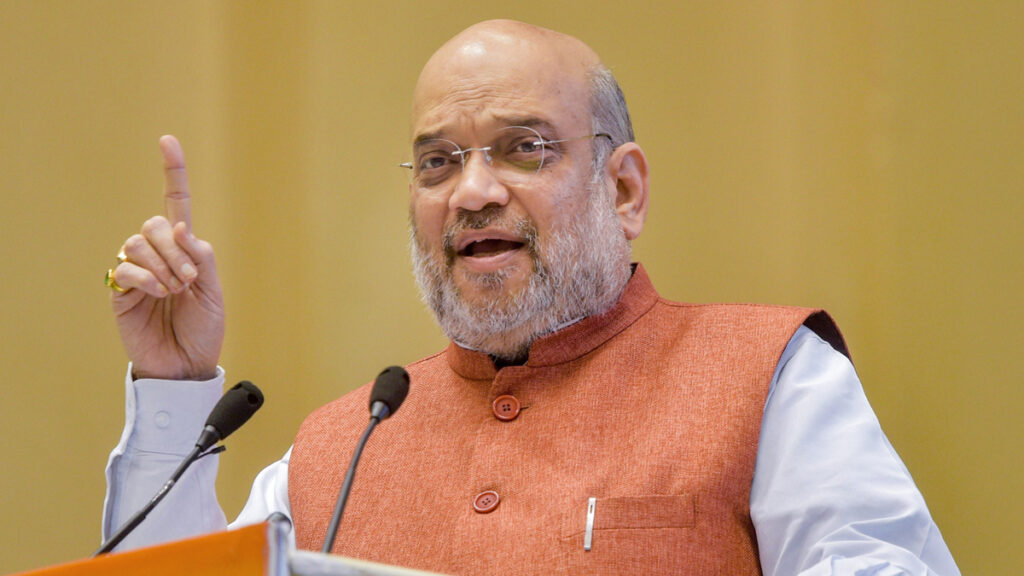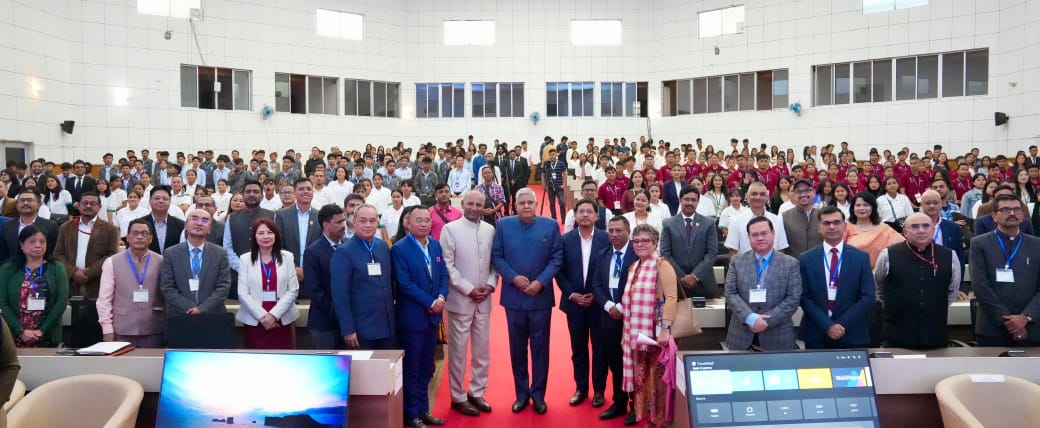The recent inauguration of the Naranarayan Shastri Institute of Technology (NSIT) in Jetalpur, Gujarat, resonated far beyond a ceremonial ribbon-cutting. It marked a pivotal moment in the village’s transformation, blossoming into a vibrant hub for forensic science education and research. Union Home Minister Amit Shah’s visit, coupled with the ongoing development of the National Forensic Science University (NFSU), paints a promising picture of Jetalpur’s ascent, fueled by a collaborative effort between the government, educational institutions, and the esteemed Swaminarayan sect.
 Shah’s address acknowledged the Swaminarayan sect’s rich legacy in nurturing education, particularly for marginalized communities. He lauded their role in boosting literacy across Gujarat and their current endeavour to establish a comprehensive educational institute in Jetalpur. This recognition highlights education as the cornerstone of individual and community empowerment, paving the way for social progress and economic prosperity. Jetalpur’s transformation from a village to a knowledge centre embodies this philosophy, aiming to empower not just local youth but aspiring forensic scientists from across the nation.
Shah’s address acknowledged the Swaminarayan sect’s rich legacy in nurturing education, particularly for marginalized communities. He lauded their role in boosting literacy across Gujarat and their current endeavour to establish a comprehensive educational institute in Jetalpur. This recognition highlights education as the cornerstone of individual and community empowerment, paving the way for social progress and economic prosperity. Jetalpur’s transformation from a village to a knowledge centre embodies this philosophy, aiming to empower not just local youth but aspiring forensic scientists from across the nation.
The event’s central focus pivoted towards the newly launched forensic science courses at NSIT and the ambitious plans for the NFSU. Shah envisioned Jetalpur not just as a local centre but as a magnet attracting aspiring forensic science experts from across the state, ultimately serving the entire nation. This vision aligns with the growing demand for skilled professionals in this increasingly crucial field, essential for ensuring a robust and efficient criminal justice system. Shah’s assurance that 30,000 individuals will be trained annually starting in 2025 reflects the government’s proactive approach to addressing this critical need.
Shah’s words held weight as he commended Prime Minister Modi’s initiative in elevating the Gujarat Forensic Science University to a National level. But the aspirations transcended national boundaries. He unveiled the audacious goal of transforming the NFSU into a world-leading technical university in the realm of forensic science. This ambition underscores India’s commitment to playing a pivotal role in advancing forensic science research and innovation on the global stage. Jetalpur’s blossoming reputation could attract international collaboration, fostering knowledge exchange and propelling India to the forefront of this dynamic field.
Shah’s address also delved into the crucial role of forensic science evidence in the recently reformed criminal justice system, where its collection is mandatory for serious crimes. This legal shift necessitates a significant increase in qualified forensic science experts. Shah’s emphasis on collaboration transcended the inauguration ceremony, highlighting the need for coordinated efforts between NSIT, NFSU, and other institutions to develop a robust training infrastructure capable of meeting this demand.
Shah went beyond the immediate inauguration, applauding the new education policy for its emphasis on flexibility. This policy allows students from different streams to explore diverse subjects, breaking down rigid boundaries and promoting interdisciplinary learning. He viewed this as a catalyst for Indian universities to climb the global ranking ladder, fostering a more competitive and dynamic educational landscape. This echoes the spirit of the NFSU, which can leverage this policy’s flexibility to develop innovative curriculum options that attract diverse talent and nurture well-rounded forensic science professionals.
The inauguration ceremony not only highlighted individual initiatives but also emphasized the power of collaboration. The interplay between institutions like NSIT, NFSU, and the Home Ministry exemplifies a concerted effort to achieve a shared vision. This collaborative ecosystem stands as a cornerstone for establishing Jetalpur as a premier centre for forensic science education and research, not just for India but for the global community.




